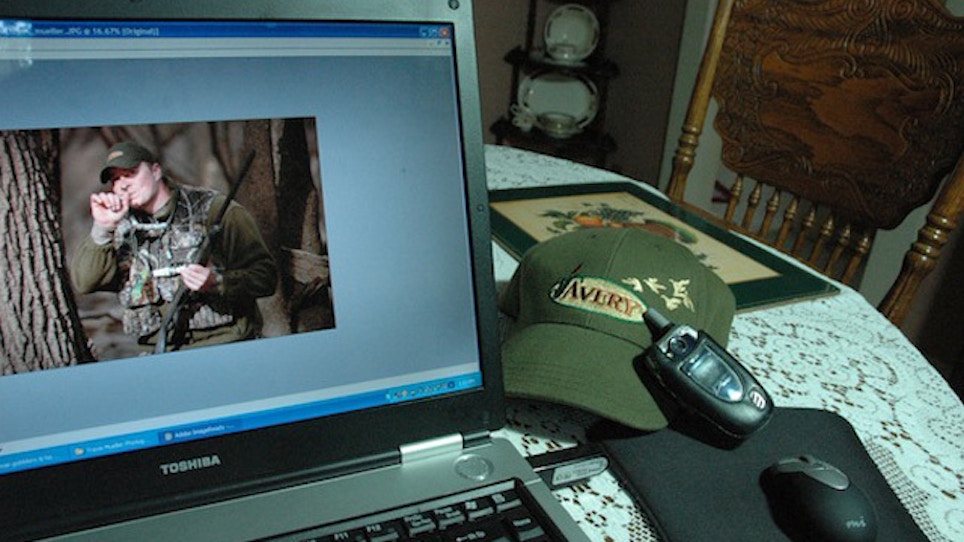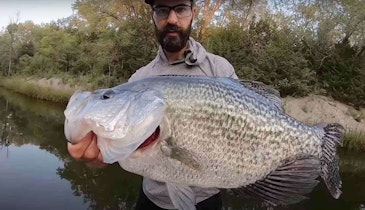Cyber-scouters. Internet explorers. Spot-stealers. Unethical, lazy, rotten, duck-nabbin' @&%<+*!#@! They're known by myriad names, these individuals who lurk around the fringes of popular websites devoted to waterfowl hunting, waiting to discover, electronically, the location of your favorite duck hole, and then hunt there themselves. Repeatedly.
But is that all there is to it, this cyber-scouting? This supposed high-tech thievery? Or can the Internet and its wealth of electronic riches actually help you become a better, more efficient waterfowler? Where does traditional scouting, for lack of a better phrase, stop, and spot-nabbing begin? Climb aboard the Information Superhighway, and let’s take a look around the waterfowling community, where at times hardware and hard-core clash.
Cyber-Scouting = Spot Thievery?
One December, the Washington state forum, a part of The Duck Hunter's Forum (duckhunter.net), featured a thread specifically addressing the subject of Internet scouting. Does it happen? Is it detrimental? And the biggie: Has anyone been burnt, or had their favorite duck hunting hole ravaged and pillaged unmercifully by an unscrupulous public, as a result of information posted and later retrieved from a website?
The results, as you can view for yourself, varied widely. Comments ranging from "I've been burnt" to "It's bad," "It's not prevalent," "What's the difference?," and my personal favorite and a theory to which I subscribe wholeheartedly — "If you're going to post photographs of dead ducks with recognizable landmarks available OF a public location ON a public forum, then you should expect an increase in the popularity of that particular spot."
Perhaps the biggest question here is "is Internet scouting ethical?," where Internet scouting is defined as viewing a photograph which has been voluntarily posted on a public forum, aka website, and subsequently using the information extracted from those observations to place yourself in the identical or an approximate location for the purpose of waterfowl hunting. Some would call such a tactic underhanded; others, myself included, feel that an entertaining and informative story can be told and photographs displayed publicly without revealing the whereabouts of the hunt, but that information made public goes into a well known as Public Information, and from this well, waterfowlers around the globe may draw.
The bottom lines are this — If being scouted via Internet bothers you, don't post revealing photographs or text. If scouting via Internet post and photograph concerns you, don't do it. If you can sleep well after cross-referencing and researching a public image you've uncovered on the Internet, which leads you to a formerly unknown though public waterfowling location, so be it.
Regardless of how one personally feels about the topic of Internet scouting, it's difficult to argue with the fact that the primary purpose of the Internet is clear — the dissemination of information to the masses. Likewise, it's easy to see that the 'net does offer the waterfowler a vast pool of resources from which to draw.
Current And Constantly Updated Information
It's continually amazing to me just how much information is available online. True, there's a lot of separating the good from the bad — rather, the BS from the non-BS — that must go on as we decide that which we do and don't wish to distill from cyberspace, but this is an ability developed and honed with time.
One of the most positive attributes of the Internet, and one of particular importance to waterfowlers, is that the Information Superhighway spans the ages. The novice, the individual just breaking into waterfowling who needs to know what and where and most importantly, how, can find an almost infinite amount of written and visual matter on the 'net. Chat rooms and forums can be of great significance to the new guy in terms of developing a fundamental waterfowling education. A question is raised, and a thousand responses given; all the newcomer must do is read, and then ask questions of the responses. As for the field veteran, the 'net features electronic opportunities to advance through hunting's various stages, all with the click of a mouse. Whether it's building your own layout boat, carving your first canvasback decoy, or doing the taxidermy on that beautiful drake harlequin, it's all there at your fingertips.
But it's the Internet's timeliness, the constant and continual revisions and updates, that attract many waterfowlers to the realm of cyberspace. Today's weather right now; tomorrow's weather today — it's available immediately, and of major significance to the traveling duck hunter. Migration reports, river levels, tide tables, even something as momentary as temporary road closures or detours can all be found, monitored and noted online.
Convenience
As a professional writer, I find the Internet, above all things, the epitome of convenience. As a waterfowler, too, I've discovered that bobbing and weaving through cyberspace can and does save me time and money. No longer do I have to (a) locate a registered license agent, (b) drive to said license agent's place of business, and (c) return home. All this now can be accomplished with a few clicks of the mouse and a credit card. Non-resident paperwork, too, is a breeze. While logged onto the particular state fish and wildlife agency's website, I can register to be notified of any and all noteworthy news releases and breaking information via e-mail; thus, I'm not only licensed, but constantly informed and updated. And after all, isn't scouting simply the accumulation of information?
Camaraderie
Over the past two decades, 'net has grown into a virtual duck blind or goose pit, where individuals through word and visual image take others through the pre-season, the hunt, and the post-hunt remembrance and celebration. Wildlife managers share in these cyber-outings. So, too, do waterfowl biologists, field veterans, new guys, men, women, children, good hunters, and — well, some not-so-good hunters. The Internet, unmasked, is really just story-telling for the 21st Century, complete with the same bonds and relationships that men initially made face to face, post-hunt, in a brew pub after the sun had faded and the shotguns had been cleaned and stacked away 'til morning next. Some men say little or nothing about where, speaking only of the hunt itself; of the experience. Others, fueled by the pint, ego, machismo, or any of a hundred individualized reasons, speak volumes — and then are slack-jawed when their formerly unoccupied slice of avian heaven has been trimmed into razor-thin portions. The 'net offers the modern waterfowler so much in terms of discovery; however, your pleasure or dissatisfaction depends entirely on what you put into it — or what you don't.






